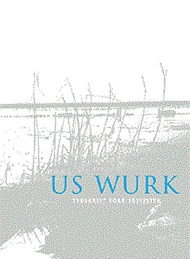West hat, west is: it helptiidwurd fan it perfektum by 'wêze'
Abstract
The simple perfect tense of the Frisian verb ‘wêze’ (to be) can beconjugated both with ‘hawwe’ (have) and with ‘wêze’ (be). Thus we find “Ik
haw west” (lit. I have been) alongside “Ik bin west” (lit. I am been).
However, the option exists only if the auxiliary of the perfect is a simple
present or a simple past. If the auxiliary of the perfect is an infinitive, as in
“Soe er siik west hawwe / *wêze” (lit. Should he ill been have / *be), ‘wêze’
is hardly acceptable. We investigate the choice of ‘wêze’ and ‘hawwe’ as
perfect auxiliary of ‘west’ (been) in Modern Frisian, Middle Frisian, Old
Frisian and Dutch. Our analysis of the facts provides support for Ackema’s
(2001) interpretation of the OCP. The OCP forbids adjacency of two elements
which are identical in some sense to be made precise. We provide our
own formulation of this principle, and refer to it, for ease of reference, as
the Principle of Distinctivity. In our view, this principle requires two adjacent
words to differ as much as possible with respect to syntactic category
(syntactic features) or with respect to outward shape. Independent evidence
for the PD comes from a ban on sequences of identical complementisers,
and from a ban on sequences of identical adverbs. We then go on to briefly
discuss choice of perfect auxiliary for the equivalent of ‘been’ in other
languages, and argue that the facts provide further support for the PD.

